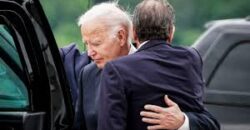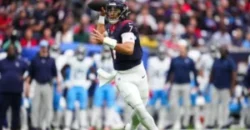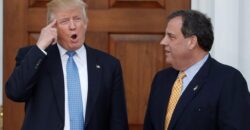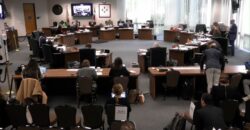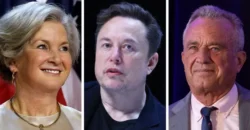NATO’s new top diplomat suggested on Tuesday that Ukraine should put off any peace talks with Russia until Western allies can send enough military aid to help Kyiv push ahead on the battlefield and garner a stronger negotiating position.
Mark Rutte, the NATO secretary general, said it was up to Ukraine to decide when it was ready to begin negotiations with Russia in a war that has dragged on for nearly three years.
But with U.S. President-elect Donald J. Trump vowing to secure a quick cease-fire that officials in Kyiv fear would be favorable to Russia — and despite war fatigue hanging over parts of Europe — Mr. Rutte urged the military alliance’s members to step up shipments of weapons, ammunition and air defenses before they try working toward a truce.
“Let’s not have all these discussions, step by step, on what a peace process might look like,” Mr. Rutte said ahead of two days of meetings of foreign ministers, including Ukraine’s, at NATO headquarters in Brussels. “Make sure that Ukraine has what it needs to get to a position of strength when those peace talks start.”
“So I would say more military aid, and less discussions on what the peace process could look like,” Mr. Rutte added.
His comments came even as President Volodymyr Zelensky of Ukraine has recently shifted his public stance on a potential peace deal. After years of insisting that Ukraine would cede no territory to Russia in a deal, he has recently signaled that Ukraine would be willing to do so — for now, at least — in return for NATO membership.
While NATO membership remains unlikely while the war is ongoing, Mr. Zelensky’s rhetoric is a marked change. Officials in Kyiv have even provided a rationale that could potentially allow them to temporarily cede territory, asserting that Russian-controlled land in Ukraine would not be internationally recognized as part of Russia.
On Sunday, Mr. Zelensky also admitted that Ukraine’s army couldn’t liberate some of the estimated 20 percent of its territory that Russia occupies, including Crimea. “Our army lacks the strength to do that,” Mr. Zelensky told the Japanese news agency, Kyodo News.
Mr. Zelensky has remained adamant, though, that Ukraine must become a full member of NATO immediately to guarantee its security, even if Russian-occupied areas do not receive full alliance protection.
In a statement Tuesday, Ukraine’s foreign ministry pointedly cited a 1994 treaty that guaranteed the country’s peace and territorial sovereignty in exchange for giving up its nuclear arsenal. Russia violated that agreement, known as the Budapest Memorandum, with its incursion into Ukraine in 2014, which led to the full-scale invasion in 2022, the statement said.
“With the bitter experience of the Budapest Memorandum behind us, we will not accept any alternatives, surrogates or substitutes for Ukraine’s full membership in NATO,” it said.
The alliance has declared Ukraine’s eventual membership as “irreversible,” but NATO states are divided on how soon it should be allowed in.
Recently there have been a swirl of proposals to end the fighting as Ukraine struggles to maintain its foothold on the front lines. Although Russian soldiers are being killed and wounded at an unprecedented rate in this war — averaging as many as 1,500 a day in November, according to intelligence estimates — Ukraine is steadily losing miles of territory where, just months ago, the two sides fought over mere yards.
Mr. Trump has been vague about how he would bring peace to Ukraine in as little as 24 hours, as he has pledged. But senior officials in his administration, including Vice President-electJD Vance, have proposed such ideas as allowing Russia to keep the territory it has captured and guaranteeing that Ukraine will not join NATO, or withholding military aid to Ukraine until it agrees to negotiate.
More than half of the military aid that Ukraine receives comes from the United States, which has sent more than $61 billion in weapons and equipment since the full-scale war began in February 2022.
But senior NATO officials said Tuesday that President Vladimir V. Putin of Russia appears uninterested in negotiating peace while he is gaining ground — unless the deal being discussed is to his advantage.
“It’s not in our interest, none of us, if Putin wins this war,” Admiral Rob Bauer of the Netherlands, NATO’s top military officer, said in a brief interview. “Wars can change — and the situation can change, based on what we do.”
Far from approaching peace, the war has escalated in recent weeks.
Last month, Ukraine launched long-range American and British artillery into Russia for the first time, prompting Moscow to accuse NATO of becoming a direct participant in the war. Russia countered within days by firing an experimental ballistic missile designed to carry nuclear weapons at a weapons factory in eastern Ukraine. The missile caused limited damage, but Mr. Rutte said on Tuesday that its use sought to intimidate “those who support Ukraine as it is defending itself.”
In recent days, Estonia, Germany, Lithuania, Norway, Sweden and the United States have provided hundreds of millions of dollars in ammunition, air defenses and other arms as the allies try to demonstrate they are stepping up support to Ukraine and the Biden administration pushes as much American matériel to the war before Mr. Trump takes office in January.
“We need this certainty,” said Ukraine’s foreign minister, Andrii Sybiha. “We need strong decisions to strengthen us, to strengthen our capacities.”
Mr. Sybiha said Ukraine needed at least 19 more air defense systems to protect its people and energy infrastructure from Russian attacks.
The effort is particularly dire as bitter cold sets in, in Ukraine, “with once again Putin, weaponizing winter, trying to freeze people out of their homes, turn out the lights,” Secretary of State Antony J. Blinken said. “We’re not going to let that happen.”


